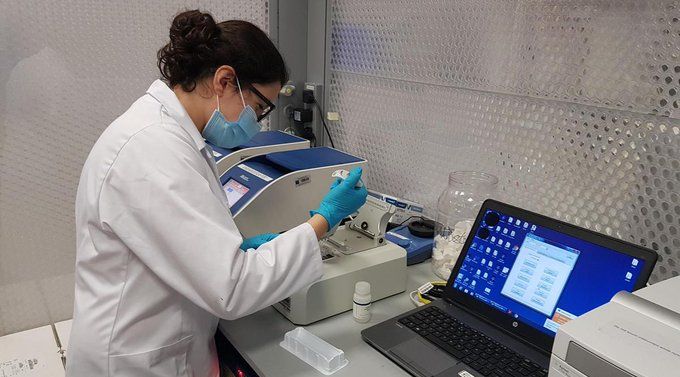In a bid to enhance examining capacity for the COVID-19 virus, researchers from NYU Abu Dhabi’s Biology Programme and Centre for Genomics and Systems Biology (CGSB) have initiated a new three-step testing technique that provides cost-effective and improved Coronavirus testing accuracy.
NYUAD researchers were led by Professor of Biology at NYU and NYUAD Kris Gunsalus and Assistant Professor of Biology at NYUAD Youssef Idaghdour during the process. Instead of combining the RT and qPCR reactions, the NYUAD researchers used a methodology which involved sequential RT, cDNA preamplification and qPCR by employing a microfluidics platform.
The researchers used synthetic viral RNA, clinical nasopharyngeal swab samples and saliva samples to demonstrate reliable ultra-sensitive and quantifiable detection of low SARS-CoV-2 viral loads which was less than one copy/microliter.They used saliva samples from previously diagnosed samples that tested negative by clinical diagnostic testing.
According to their findings published in the Processes journal, this microfluidic RT-PCR assay is a sensitive, quantitative, and cost-effective COVID-19 detection strategy. The findings added that it could significantly reduce false-negative rate of clinical diagnostic tests such that it will serve as a crucial tool in the active screening of SARS-CoV-2 and early detection of the virus.
NYUAD Youssef Idaghdour said that the addition of a pre-amplification step and utilisation of microfluidic technology contributed to the sensitive detection process to detect low viral loads. He added that it is critical to enabling the most effective public health responses to the COVID-19 pandemic.
"Our three-step approach can significantly reduce the false-negative rate of standard RT-PCR-based diagnostic tests for SARS-CoV2 and other viral infections," the NYUAD professor said.
He further stated that it will enable public health officials to rapidly identify and trace asymptomatic people, boost the accuracy of air and environmental sampling for SARS-CoV-2, expand the scope of accurate detection to saliva testing, and help combat the spread of the COVID-19 virus.
WAM
 AR
AR UR
UR
